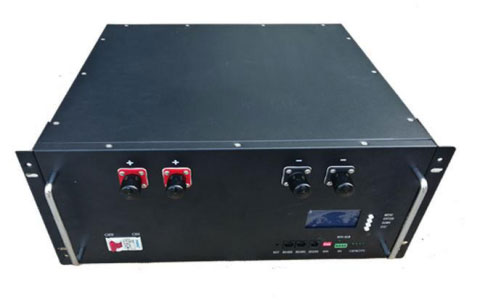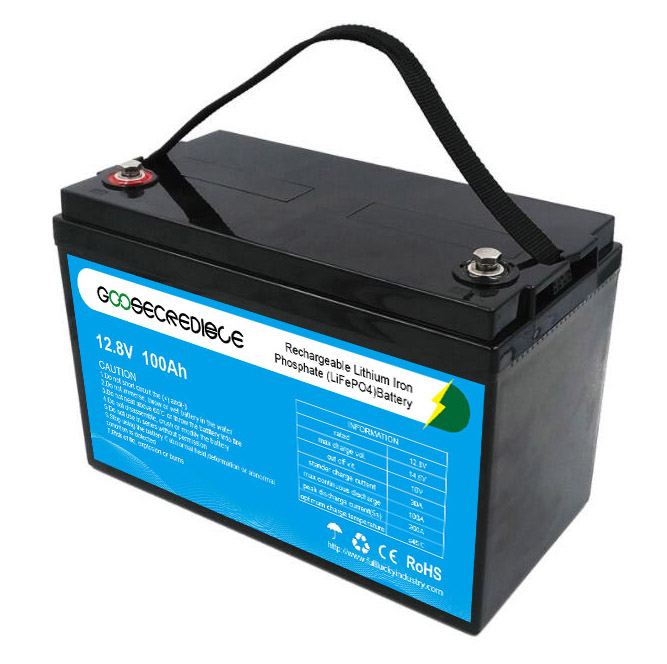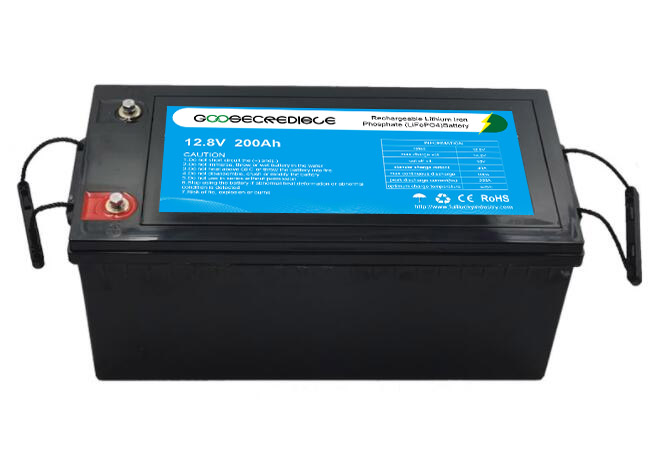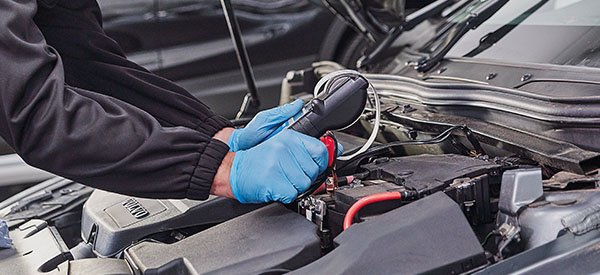From Manufacturing to Distribution: A Look into China’s Lifepo4 Battery Industr
China’s Lifepo4 battery industry has been growing rapidly in recent years, driven by the increasing demand for rechargeable batteries with high energy density and long cycle life. Lifepo4 batteries, which are a type of lithium-ion battery, have become a popular choice for applications that require high performance and reliability, such as electric vehicles, renewable energy systems, and portable electronics.
The Lifepo4 battery manufacturing process in China typically involves several stages, including raw material sourcing, electrode preparation, cell assembly, testing, and quality control. Many Lifepo4 battery manufacturers in China use advanced technologies and automated production lines to ensure consistent quality and high production efficiency.
In addition to manufacturing, China’s Lifepo4 battery industry also involves distribution and sales. There are many Lifepo4 battery suppliers in China that specialize in providing batteries for different applications, such as electric vehicles, energy storage systems, and consumer electronics. These suppliers offer a wide range of Lifepo4 batteries with different capacities, voltages, and form factors to meet the diverse needs of their customers.
The distribution channels for Lifepo4 batteries in China vary depending on the application and the customer’s location. For example, suppliers may sell their batteries directly to end-users, such as electric vehicle manufacturers or solar energy system integrators. Alternatively, they may sell their batteries to distributors, who then sell them to retailers or end-users.
The growth of China’s Lifepo4 battery industry has been supported by government policies that encourage the development of the new energy industry. The Chinese government has set ambitious targets for the adoption of electric vehicles and the development of renewable energy sources, which has led to increased demand for high-performance Lifepo4 batteries.
However, the industry also faces challenges such as fierce competition, rising raw material costs, and increasing quality standards. To remain competitive in the global market, Chinese Lifepo4 battery manufacturers need to continue investing in research and development, adopting new technologies and improving production efficiency.
Overall, China’s Lifepo4 battery industry is expected to continue growing in the coming years, driven by the increasing demand for high-performance and reliable batteries for various applications. As the industry continues to evolve, it will be interesting to see how Chinese battery manufacturers and suppliers adapt to changing market conditions and customer demands.
Time: 2023-8-14
With the increasing demand for reliable and efficient power solutions in large-scale applications, industrial battery chargers have emerged as key players in the industry. These chargers are specifically designed to provide efficient charging and power management for a wide range of industrial applications, including manufacturing plants, warehouses, and transportation systems. In this article, we will explore the features and benefits of industrial battery chargers and their significance in today's industrial landscape. Industrial battery chargers are built to handle the demanding power requirements of industrial applications. They are designed to charge and maintain batteries used in various industrial equipment, such as forklifts, electric vehicles, and backup power systems. Unlike standard battery chargers, industrial chargers are equipped with advanced features and technologies to ensure optimal performance and longevity of batteries. One of the key features of industrial battery chargers is their ability to provide high-efficiency charging. These chargers employ intelligent charging algorithms that monitor and adjust the charging process to maximize battery life and minimize downtime. By optimizing the charging process, industrial chargers can significantly reduce energy consumption and operating costs. In addition to efficient charging, industrial battery chargers also offer advanced power management capabilities. They are equipped with sophisticated control systems that allow users to monitor and control the charging process in real-time. This enables operators to efficiently manage the power supply and ensure a stable and reliable operation of industrial equipment. Another significant advantage of industrial battery chargers is their flexibility and compatibility with a wide...
Time: 2023-11-17
Aluminum batteries represent a promising frontier in energy storage technology, offering a sustainable and efficient alternative to conventional batteries. In this introduction, we will delve into the fundamental aspects of aluminum batteries, shedding light on their operation, key components, and distinctive features that set them apart from traditional battery systems. Basic Principles of Operation: At their core, aluminum batteries operate based on electrochemical principles. The key components include an anode, cathode, and an electrolyte solution. Unlike traditional batteries that often rely on toxic materials, aluminum batteries utilize aluminum as the anode – a lightweight and abundant metal. During the discharging process, aluminum atoms release three electrons, becoming positively charged ions (Al^3+). These electrons travel through an external circuit, creating an electric current. Simultaneously, the aluminum ions migrate through the electrolyte to the cathode, where they combine with ambient oxygen and electrons from the external circuit to form aluminum hydroxide. Key Components: Anode (Aluminum): The anode in aluminum batteries is typically made of aluminum foil. As aluminum undergoes oxidation during discharging, it releases electrons into the external circuit. Cathode: The cathode is often composed of a material that can efficiently capture and release oxygen during the electrochemical reactions. This process facilitates the recombination of aluminum ions with oxygen and electrons during the charging phase. Electrolyte: The electrolyte is crucial for facilitating the movement of ions between the anode and cathode. Ionic liquids or other organic electrolytes are commonly used in aluminum batteries. Distinguishing Features: Sustainability: Aluminum is an...
Time: 2023-3-2
As electric vehicles become increasingly popular, the demand for high-quality, reliable, and efficient batteries is on the rise. Lithium iron phosphate (LiFePO4) batteries, or Lifepo4 car batteries, are emerging as a popular choice for powering electric vehicles due to their high energy density, long lifespan, and fast charging capabilities. In this article, we will explore the role of Lifepo4 car battery suppliers in advancing automotive technology. Research and Development: Lifepo4 car battery suppliers play a critical role in advancing automotive technology by investing in research and development. This includes testing and optimizing battery performance, developing new materials and manufacturing processes, and exploring new technologies such as solid-state batteries. Customization: Another key role of Lifepo4 car battery suppliers is providing customized solutions that meet the unique needs of different automakers. This includes designing batteries that fit specific vehicle models and applications, as well as integrating batteries with other vehicle components such as electric motors and charging systems. Quality Control: Ensuring high-quality, reliable batteries is essential in advancing automotive technology. Lifepo4 car battery suppliers employ rigorous quality control processes to ensure that their batteries meet strict performance, safety, and environmental standards. Supply Chain Management: Lifepo4 car battery suppliers also play a critical role in managing the complex supply chain involved in battery production. This includes sourcing raw materials, managing production facilities, and working with logistics partners to ensure timely and efficient delivery of batteries to automakers. Innovation: Finally, Lifepo4 car battery suppliers are driving innovation in automotive technology by exploring...
Time: 2023-6-1
Lithium-ion batteries are widely used in electronic devices such as smartphones, laptops, and electric vehicles due to their high energy density and longer lifespan compared to other battery types. Charging a lithium-ion battery with a power supply is a simple process, but it requires caution to avoid damaging the battery or causing a safety hazard. In this article, we will discuss the steps to charge a lithium-ion battery with a power supply. Step 1: Check Battery Specifications Before charging a lithium-ion battery with a power supply, it is important to check the battery\'s specifications to ensure that the voltage and current rating of the power supply are compatible with the battery. You can find the voltage and current rating of the battery on its label or in the user manual. If the power supply voltage and current are too high, it can damage the battery or even cause a fire. Step 2: Connect the Power Supply After confirming that the power supply voltage and current are compatible with the battery, you can connect the power supply to the battery. It is recommended to use a charging cable that is designed for lithium-ion batteries to prevent short-circuiting or overheating. Step 3: Set the Charging Voltage and Current The charging voltage and current should be set according to the battery specifications. The charging voltage for most lithium-ion batteries is 4.2 volts per cell, and the charging current should not exceed the maximum charging current specified by...
Time: 2023-5-23
In today's fast-paced world, we rely heavily on technology to keep us connected and productive. However, the technology we rely on also requires a steady stream of power to operate. This is where the 48V LiFePO4 battery comes in. This high-performance battery is quickly becoming the go-to option for those looking to revolutionize their power needs. The 48V LiFePO4 battery is a lithium-ion battery that uses lithium iron phosphate (LiFePO4) as its cathode material. This material is much safer than other cathodes commonly used in lithium-ion batteries, making the 48V LiFePO4 battery a much more reliable and durable option. One of the biggest advantages of the 48V LiFePO4 battery is its long cycle life. Traditional lead-acid batteries typically have a cycle life of around 500 cycles, meaning they can only be charged and discharged around 500 times before they start to degrade. In contrast, the 48V LiFePO4 battery has a cycle life of up to 2000 cycles, making it a much more cost-effective and environmentally friendly option. The 48V LiFePO4 battery also has a much higher energy density than traditional lead-acid batteries. This means that it can store more energy in a smaller space, making it ideal for use in applications where space is limited. This high energy density also means that the 48V LiFePO4 battery can provide a more stable and consistent power output over a longer period of time. Another advantage of the 48V LiFePO4 battery is its fast charging capability. Unlike traditional lead-acid...
Time: 2023-9-24
The world has witnessed a significant transformation in the energy sector. The rise of renewable energy sources and the increasing demand for clean and sustainable power have led to the development of smart grids. These intelligent electricity networks enable efficient energy management, real-time monitoring, and optimal utilization of resources. One key component that has played a crucial role in the success of smart grids is the advancement in lithium battery technology. Lithium batteries have revolutionized the energy storage industry, providing efficient and reliable power solutions for various applications. These batteries are lightweight, have a high energy density, and can be charged and discharged repeatedly without losing their capacity. As a result, they have become the preferred choice for energy storage in smart grids. One of the significant advantages of lithium batteries is their ability to store excess energy generated by renewable sources, such as solar and wind, during periods of low demand. This stored energy can then be utilized during peak demand or when the renewable sources are not generating electricity. This feature helps in balancing the supply and demand of electricity, reducing the strain on the grid, and ensuring a steady and reliable power supply. Furthermore, lithium batteries are equipped with advanced monitoring and control systems that enable real-time tracking of energy flow. This allows grid operators to optimize the utilization of resources, identify potential issues, and respond quickly to any disturbances in the system. With the help of smart algorithms and data analytics, the performance...
Time: 2023-6-8
Efficient charging is an essential aspect of maintaining the performance and longevity of your vehicle's battery. The 24V on-board battery charger is a device designed to provide efficient charging for vehicles with 24-volt batteries. This article will explore the features and benefits of this device and how it can improve the performance of your vehicle. Firstly, the 24V on-board battery charger is a compact device that can be mounted directly onto the vehicle. It is designed to be installed permanently, which means you don't have to worry about connecting or disconnecting the charger every time you want to charge your battery. This feature makes it convenient and practical for vehicle owners who want to ensure their battery is always charged and ready to go. One of the most significant benefits of the 24V on-board battery charger is its efficiency. The device uses advanced technology to charge your battery quickly and safely. It features a microprocessor-controlled charger that monitors and adjusts the charging process to ensure the battery is charged to its fullest capacity while preventing overcharging. This feature not only saves you time but also extends the life of your vehicle battery. Another advantage of the 24V on-board battery charger is its versatility. It can be used to charge a wide range of vehicles with 24-volt batteries, including trucks, buses, and heavy-duty equipment. This device is especially useful for vehicles that are used for long periods without starting or those that are used in extreme weather conditions....
Time: 2023-11-30
In the dynamic landscape of energy storage, the race to enhance lithium battery energy density stands as a beacon of innovation. Energy density, a crucial metric measuring the amount of energy stored per unit volume or mass, has been a focal point in the quest for more efficient and powerful lithium batteries. This article explores the breakthroughs propelling lithium battery energy density to new heights and the transformative implications for industries ranging from electric vehicles to portable electronics. The Crucial Role of Energy Density in Lithium Batteries Definition and Significance: Energy density is the heartbeat of lithium batteries. It dictates how much energy a battery can store relative to its size or weight. The higher the energy density, the more power can be packed into a compact space. This metric is pivotal in determining the performance, range, and longevity of devices powered by lithium batteries, shaping the landscape of modern energy storage. Driving Forces for Improvement: The relentless pursuit of higher energy density stems from the increasing demand for more powerful and longer-lasting batteries. Electric vehicles (EVs) crave higher energy density for extended ranges, while portable electronics seek compact yet energy-dense batteries for prolonged usage between charges. The quest for breakthroughs in energy density is fueled by the vision of a future where energy storage is not just efficient but revolutionary. Evolutionary Stages: Lithium-Ion to the Next Frontier Lithium-Ion's Pioneering Role The era of lithium-ion batteries marked a watershed moment in energy storage. These batteries, with their...





















